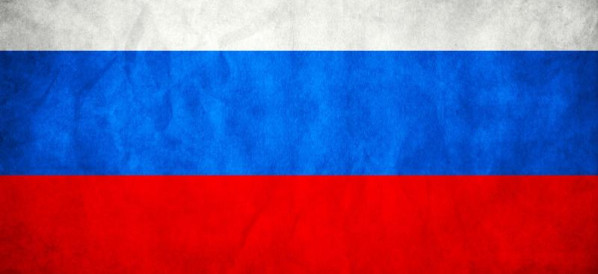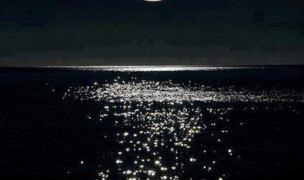 8 Terms
8 TermsHome > Terms > English (EN) > Catholic colleges
Catholic colleges
The 229 Roman Catholic colleges and universities in the US currently educate over 600,000 students. These institutions are affiliated with such religious institutes as the Jesuits and the Sisters of Mercy or, in the case of Notre Dame, with the Congregation of Holy Cross. As of 1989, 44 percent (100) are comprehensive institutions and another 40 percent (91) are liberal-arts colleges, with the rest research institutions or junior colleges.
Religious colleges tend to enroll higher numbers of women and part-time students than do non-religious institutions. They also tend to be located in the Midwest and the Northeast part of the country.
Historically Catholics often felt unwelcome in many Protestant-dominated private and state colleges. Catholic colleges were established to create a religious environment for higher education and professional schools. These schools trained everincreasing numbers of immigrant children and fostered inculturation in a Catholic milieu. They were highly effective at both tasks. Even in the late twentieth century nearly 40 percent of these students were the first in their families to attend college.
After the Second World War, the GI Bill offered tuition funds to veterans and this influx of students caused many schools to expand greatly The increase in the number of men with a college education fueled the postwar economy and propelled the percentage of college-educated Catholics upward. The children of these alumni often attended parochial schools and added to the expansion.
In the 1960s, the liberalizing effects of the Second Vatican Council were felt in the United States, and the increased numbers of wealthy and influential alumni contributed to a movement to make Catholic colleges more academically competitive. In the late 1960s, most institutions were turned over to boards of trustees, a majority of whom were lay people. At the same time, increasing openness to the new scientific methods shifted the focus of scholarship to a more scientific and a less specifically Catholic perspective. The percentages of priests and religious teaching in the colleges began to drop, with a concurrent hiring of lay people to respond to the increasing student population and the desire for increased professionalism. Ultimately the debate over what it means to be a Catholic, or religious, college grew. A few institutions even disaffiliated themselves from the Catholic Church. Schools based their identity on the teaching of theology and the development of faith life revolving around campus ministry programs. Concerns persist that colleges are becoming less Catholic. Attempts by the Roman Catholic Church to address the issue of higher education in the United States have centered, since 1991, on the Apostolic Constitution Ex Corde Ecclesiae of Pope John Paul II, in which he defines the nature of a Catholic university. Feverish debate continues unabated on this question of Catholic identity.
- Part of Speech: noun
- Synonym(s):
- Blossary:
- Industry/Domain: Culture
- Category: American culture
- Company: Routledge
- Product:
- Acronym-Abbreviation:
Other Languages:
Member comments
Terms in the News
Billy Morgan
Sports; Snowboarding
The British snowboarder Billy Morgan has landed the sport’s first ever 1800 quadruple cork. The rider, who represented Great Britain in the 2014 Winter Olympics in Sochi, was in Livigno, Italy, when he achieved the man-oeuvre. It involves flipping four times, while body also spins with five complete rotations on a sideways or downward-facing axis. The trick ...
Marzieh Afkham
Broadcasting & receiving; News
Marzieh Afkham, who is the country’s first foreign ministry spokeswoman, will head a mission in east Asia, the state news agency reported. It is not clear to which country she will be posted as her appointment has yet to be announced officially. Afkham will only be the second female ambassador Iran has had. Under the last shah’s rule, Mehrangiz Dolatshahi, a ...
Weekly Packet
Language; Online services; Slang; Internet
Weekly Packet or "Paquete Semanal" as it is known in Cuba is a term used by Cubans to describe the information that is gathered from the internet outside of Cuba and saved onto hard drives to be transported into Cuba itself. Weekly Packets are then sold to Cuban's without internet access, allowing them to obtain information just days - and sometimes hours - after it ...
Asian Infrastructure Investment Bank (AIIB)
Banking; Investment banking
The Asian Infrastructure Investment Bank (AIIB) is an international financial institution established to address the need in Asia for infrastructure development. According to the Asian Development Bank, Asia needs $800 billion each year for roads, ports, power plants or other infrastructure projects before 2020. Originally proposed by China in 2013, a signing ...
Spartan
Online services; Internet
Spartan is the codename given to the new Microsoft Windows 10 browser that will replace Microsoft Windows Internet Explorer. The new browser will be built from the ground up and disregard any code from the IE platform. It has a new rendering engine that is built to be compatible with how the web is written today. The name Spartan is named after the ...
Featured Terms
Russia
Russia is a country situated in northern Eurasia. It is a federal semi-presidential republic. From northwest to southeast, Russia shares land borders ...
Contributor
Featured blossaries
Browers Terms By Category
- SAT vocabulary(5103)
- Colleges & universities(425)
- Teaching(386)
- General education(351)
- Higher education(285)
- Knowledge(126)
Education(6837) Terms
- Lumber(635)
- Concrete(329)
- Stone(231)
- Wood flooring(155)
- Tiles(153)
- Bricks(40)
Building materials(1584) Terms
- Conferences(3667)
- Event planning(177)
- Exhibition(1)
Convention(3845) Terms
- Plastic injection molding(392)
- Industrial manufacturing(279)
- Paper production(220)
- Fiberglass(171)
- Contract manufacturing(108)
- Glass(45)
Manufacturing(1257) Terms
- Air conditioners(327)
- Water heaters(114)
- Washing machines & dryers(69)
- Vacuum cleaners(64)
- Coffee makers(41)
- Cooking appliances(5)




